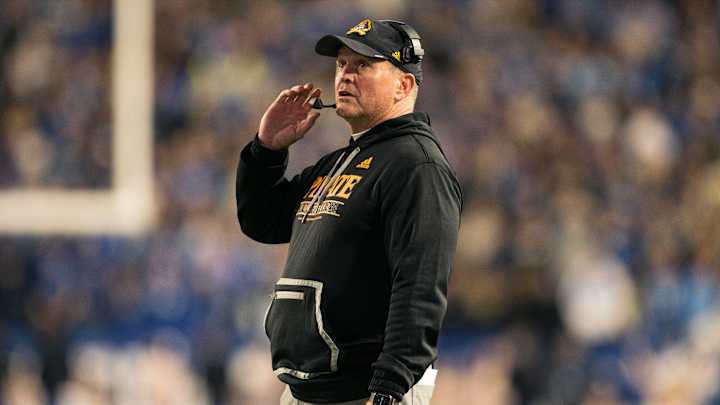East Carolina Fires Head Coach Amid Tumultuous College Football Season
In a move that has sent ripples through the college football community, East Carolina University has parted ways with head coach Mike Houston following a disappointing start to the season.
This decision, announced on Monday, comes after the Pirates’ 2-5 record, which has left fans and alumni frustrated with the program’s direction.
Houston, who took over the reins in 2019, showed promise during his initial seasons, leading the team to a bowl game in 2021. However, this year’s struggles have overshadowed those achievements.
The team’s lackluster performance, characterized by inconsistent offense and a struggling defense, raised questions about Houston’s ability to develop the program into a competitive force in the American Athletic Conference.
The timing of Houston’s dismissal reflects a broader trend in college football, where coaches are increasingly facing the pressure of immediate results.
With the landscape of college athletics shifting due to the introduction of the transfer portal and NIL (Name, Image, and Likeness) deals, expectations for success have reached unprecedented levels.
Programs are no longer willing to endure extended periods of mediocrity, and as a result, coaching changes are becoming a common occurrence.
This season alone has already seen several high-profile coaching changes. Programs from across the country are reevaluating their leadership in light of performance metrics that fall short of expectations.
The urgency for change is palpable, as schools aim to align themselves with a more competitive future. The trend underscores a harsh reality: in today’s college football environment, patience is a luxury few can afford.
In the wake of Houston’s firing, East Carolina will now turn its attention to finding a successor who can reinvigorate the program.
Athletic Director Jon Gilbert emphasized the need for a coach who can not only inspire the team but also connect with the fan base and elevate the program’s profile.
The search will undoubtedly focus on candidates with a track record of success and the ability to adapt to the rapidly changing dynamics of college football.
As East Carolina navigates this transitional phase, it remains to be seen how many other programs will follow suit in the coming weeks.
With the season still unfolding, the pressure on coaches nationwide is mounting. The stakes are high, and with each passing week, the possibility of further coaching changes looms large.
College football, a sport defined by its passionate fan base and intense rivalries, continues to evolve, and with it, the roles and responsibilities of those who lead its teams.









